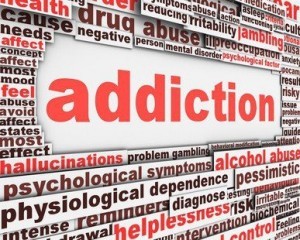
Other psychologists disagree with this strict definition of addiction, suggesting that anything which you use regularly and which disturbs your normal life or affects your relationships with other people is an addictive substance.
That means you can be “addicted” to almost anything. Indeed, you will hear people say they are addicted to their favourite games machine, or they are addicted to a particular social network. What they probably mean is they are obsessed by it, rather than actually addicted. Few people are using social networks so much that they interfere with their normal day-to-day activities and examples of people getting physical symptoms because their games machine has been withdrawn are hard to find.
So when it comes to something like search engine optimisation is it at all likely that people could be come addicted to it? Or is it that some people are merely obsessed with it?
SEO shares a common feature which is present in most addicted substances – obvious, positive stimulation leading to a sense of reward. People who are prone to addiction get a sense of elation and feel rewarded by the substance to which they have become addicted. This is why we can get addictions to non-physical things, like gambling or looking at pornographic images.
For some people SEO has properties which make it stimulating. You track down the keywords you want to be found for, then you fiddle with your web page wording and settings and submit your page to the web. Then you check and use analytics software to see how well you are doing. You track the graph and get stimulated by seeing your web page rise from nowhere to within the Top 10 and then to the Holy Grail of the Top 3. Every day you check your results, you search for more advice on tweaking your web pages and you make more changes to get right to the top of the search engines. Some might say you are already addicted.
It is this reward cycle which dominates SEO which could be a problem – not that you are ever likely to need therapy for SEO addiction…! But what it does is take our mind off the real goal.
The real aim of business web activity is NOT being top of the search engines – but financial profit. And there are plenty of businesses making stonking great profits who are not top of the rankings.
Search Engine Optimisation is just ONE way in which you can derive those profits – but it is not the only way. So, yes, it is an activity which may well be worthwhile for your business, but it needs to be less “addictive”. Forget the “reward” of those tracking graphs and your detailed analytics. Instead, focus on the reward of the extra cash in your bank account – that’s a much better graph to track for a business.
The fact that SEO can be so diversionary is highlighted by the case of the recruitment firm KAS Placement where the boss focused so much on SEO he ignored many of the other aspects of running his business which were equally, if not more, important.
Ultimately, the chances are you cannot be addicted to SEO – but like KAS Placement you can easily get drawn in by its charms, which are substantial.

We have some clients of which this is an obsession, for others a balanced part of their overall marketing stratgy – which is the right way to go